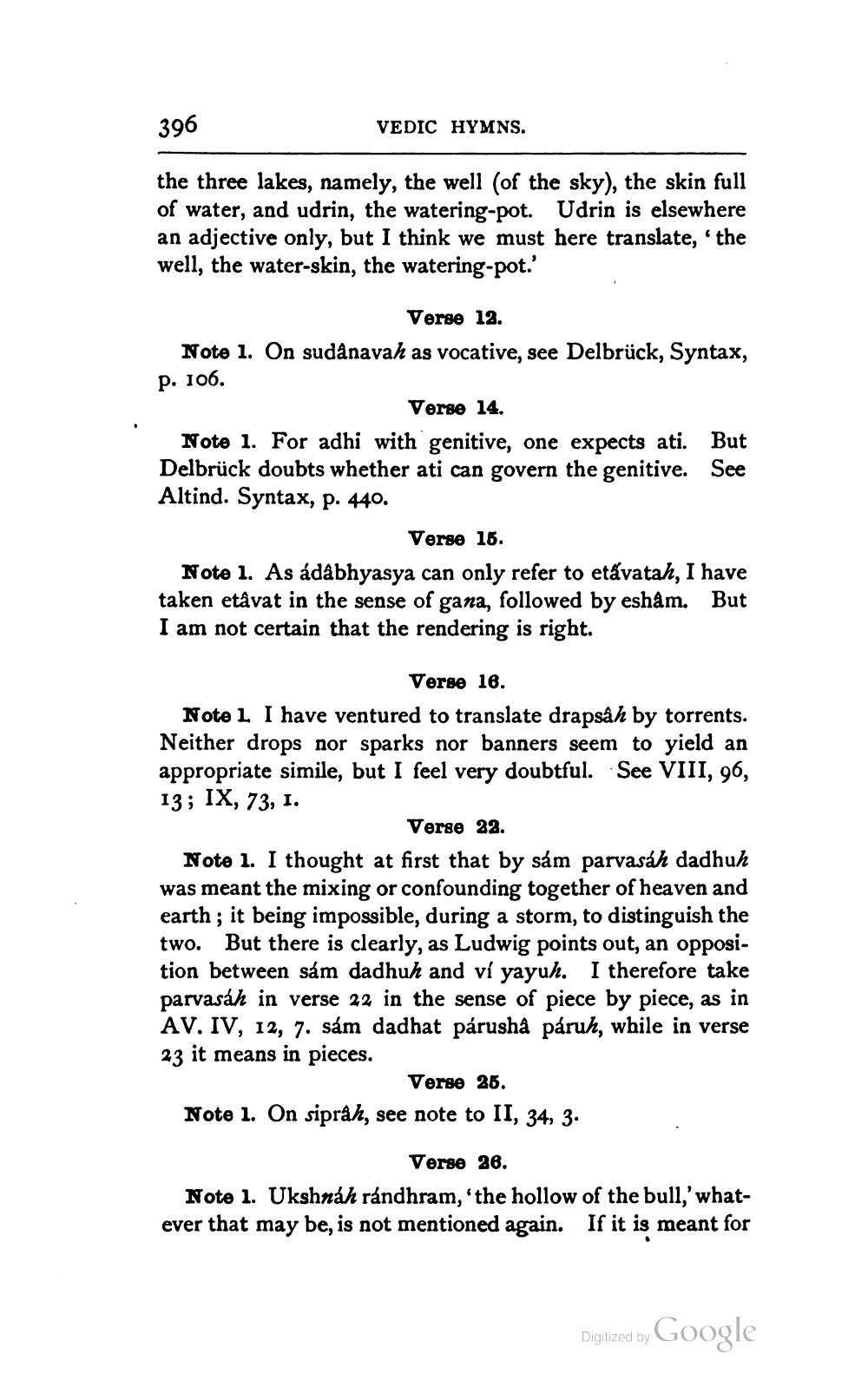________________
396
VEDIC HYMNS.
the three lakes, namely, the well (of the sky), the skin full of water, and udrin, the watering-pot. Udrin is elsewhere an adjective only, but I think we must here translate, the well, the water-skin, the watering-pot.'
Verse 12. Note 1. On sudanavah as vocative, see Delbrück, Syntax, p. 106.
Verse 14. Note 1. For adhi with genitive, one expects ati. But Delbrück doubts whether ati can govern the genitive. See Altind. Syntax, p. 440.
Verse 16. Note 1. As ádábhyasya can only refer to etávatah, I have taken etávat in the sense of gana, followed by esham. But I am not certain that the rendering is right.
Verse 16. Note 1. I have ventured to translate drapsâh by torrents. Neither drops nor sparks nor banners seem to yield an appropriate simile, but I feel very doubtful. See VIII, 96, 13; IX, 73, 1.
Verse 22. Note 1. I thought at first that by sám parvasáh dadhuh was meant the mixing or confounding together of heaven and earth ; it being impossible, during a storm, to distinguish the two. But there is clearly, as Ludwig points out, an opposition between sám dadhuh and ví yayuh. I therefore take parvasáh in verse 22 in the sense of piece by piece, as in AV. IV, 12, 7. sám dadhat párushå páruh, while in verse 23 it means in pieces.
Verse 26. Note 1. On siprah, see note to II, 34, 3.
Verse 26. Note 1. Ukshnah rándhram,'the hollow of the bull,' whatever that may be, is not mentioned again. If it is meant for
Digitized by Google




